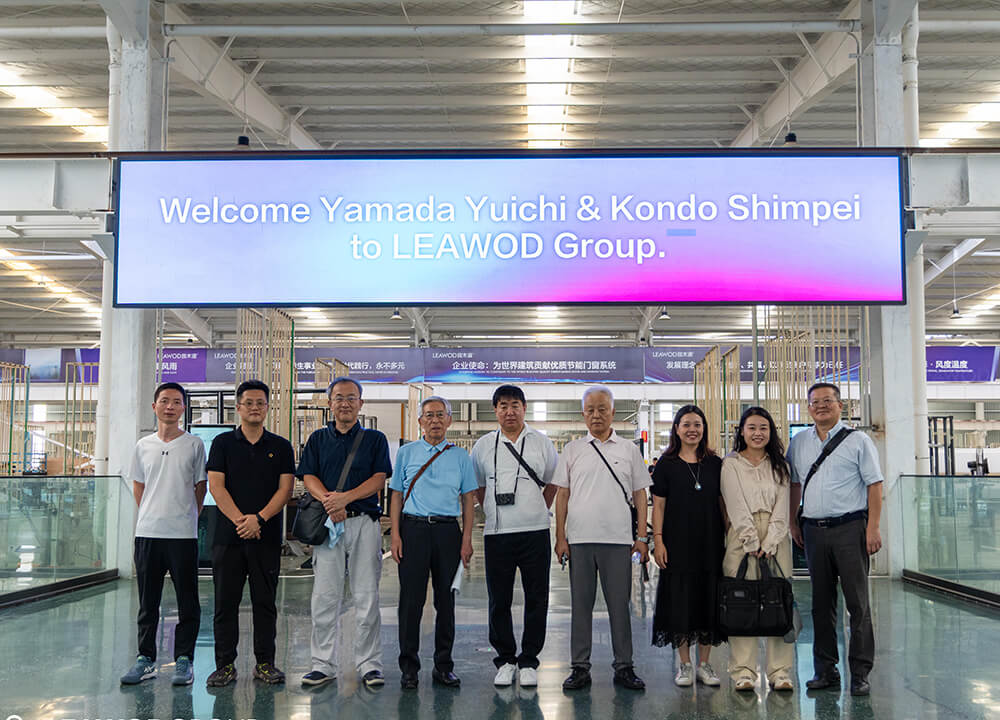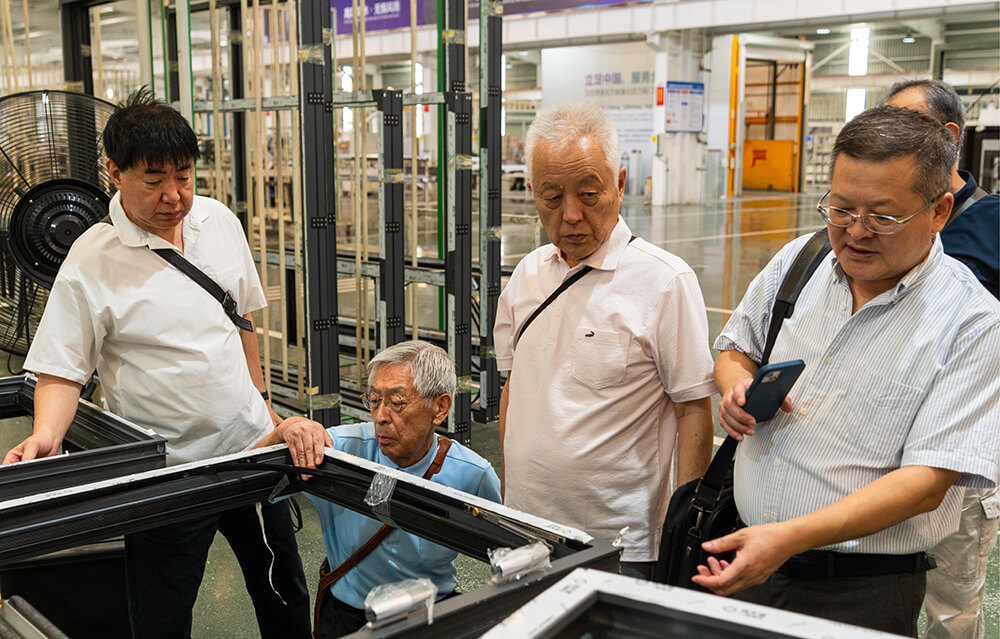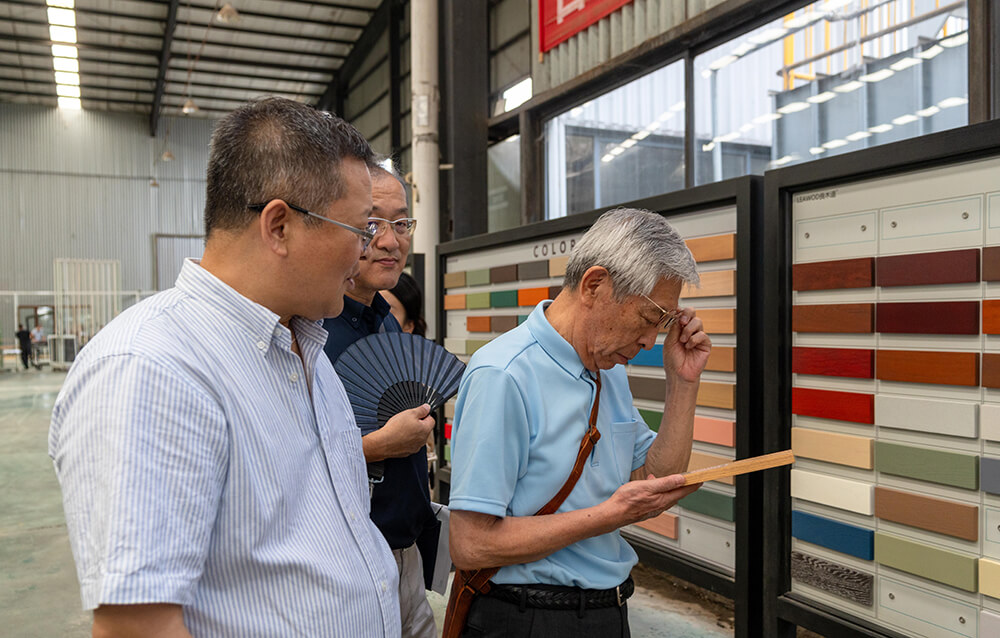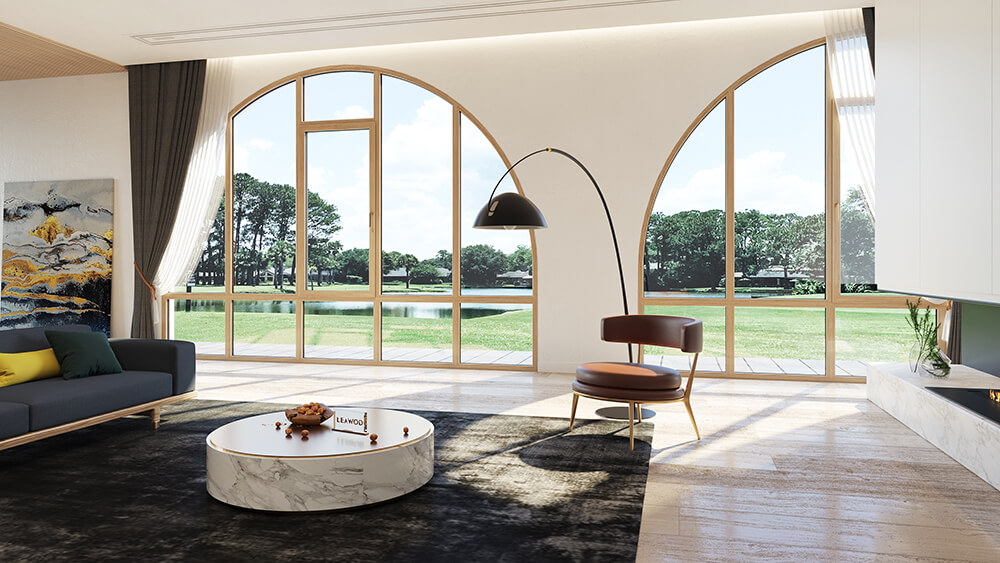Recently, the president of Japan's Planz Corporation and the chief architectural designer of Takeda Ryo Design Institute visited LEAWOD for a technical exchange and industrial visit centered on wood-aluminum composite windows and doors. This visit not only reflects the international market's recognition of LEAWOD's technical capabilities but also highlights the strategic effectiveness of the company's efforts to expand overseas markets with "Made in China" intelligence.

The first stop of the visit was the aluminum alloy workshop at LEAWOD's Southwest Manufacturing Base. As a key hub for intelligent production in China's window and door industry, the base showcased an efficient operational model for aluminum alloy windows and doors, from profile cutting to finished product assembly, through fully automated production lines and precision processing technology. The visiting team expressed high approval of the standardized quality control system implemented in the workshop and engaged in in-depth discussions on the practical application effects of the "seamless integrated welding" technology in enhancing the structural integrity of windows and doors.

The focus of the visit then shifted to the wood-aluminum workshop . As the core R&D and production area of the company, this workshop showcased the technological in the field of wood-aluminum composite windows and doors. The on-site staff introduced assembly, painting, and other processes, and provided detailed explanations of how the products achieve the dual characteristics of "wood texture + aluminum alloy strength" through material compositing. The Japanese guests showed great interest in the stability of wood-aluminum windows and doors under extreme climate conditions, particularly discussing their thermal insulation and soundproofing performance in relation to Japan's building energy efficiency standards.
Data shows that wood-aluminum composite windows and doors are becoming an important option for global building energy efficiency renovations due to their advantages in both environmental sustainability and performance. LEAWOD's products, certified under international standards such as the EU CE certification and the U.S. NFRC certification, are exported to markets in Japan, Southeast Asia, and the Middle East.

Previously, LEAWOD made an appearance at the Osaka World Expo, showcasing innovative technologies such as "seamless integrated welding" and "full-cavity filling" to a global audience. During the exhibition, the company had cooperation intentions with several international channel partners, reflecting the shift in overseas consumers' perception of Chinese manufacturing from "cost-effectiveness" to "technical aesthetics." This on-site visit by Japanese clients further validated the effectiveness of LEAWOD's dual-track model of "exhibition exposure + factory inspection" and demonstrated the company's solid steps toward “High-end Oriented” and “Internationalization”. As foreign trade cooperation continues to deepen, LEAWOD is using wood-aluminum windows and doors as a bridge to bring "Eastern aesthetics + modern technology" solutions to the global market.

Post time: Aug-28-2025
 +0086-157 7552 3339
+0086-157 7552 3339  info@leawod.com
info@leawod.com 




